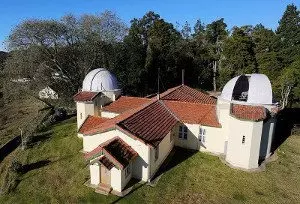International solar conference celebrates 125 years of solar physics research in India: IIA

New Delhi, Jan 24 The ongoing International Solar Conference celebrates the birth and growth of solar astronomy and physics in India, said the Indian Institute of Astrophysics (IIA) on Friday.
The IIA organised the conference on the theme ‘Sun, Space Weather, and Solar-Stellar Connections’ to commemorate the 125th anniversary of its Kodaikanal Solar Observatory (KSO). “This conference celebrates the birth and growth of solar astronomy and solar physics in the country.
With experts from across the world, it will discuss all aspects of the Sun as well as space weather,” said Prof. Annapurni Subramaniam, Director of IIA, an autonomous institute of the Department of Science and Technology (DST).
In the last 125 years, the KSO has been providing invaluable insights into the Sun's behaviour and its impact on Earth through its repository of photographic images.
It has been the harbinger of the birth of solar astrophysics in the country. In a video message, DST Secretary, Prof. Abhay Karandikar, spoke about initiatives undertaken by the IIA like the digitisation of KSO’s historic records, as well as the institute’s significant contribution to the Aditya-L1 mission.
He also underlined upcoming ventures like the National Large Solar Telescope proposed to be built at Merak, on the banks of Pangong Tso in Ladakh, while adding that “the efforts promise to open new frontiers of discovery in solar astrophysics”.
“ISRO has all the capabilities to help the solar physics research from space,” A.S. Kiran Kumar, former ISRO Chairman, and the chair of the Governing Council of IIA. He also challenged the community to come up with ideas for new instruments that ISRO can launch.
Established in 1899, the KSO is a cornerstone of Indian astronomy and has been at the forefront of solar research in the country. The observatory's unique location, coupled with its state-of-the-art equipment, has enabled it to make significant contributions to our understanding of sunspots, solar flares, coronal mass ejections, and other solar phenomena.
The event, being held in Bengaluru, Karnataka from January 20-25, saw the participation of more than 200 solar physicists from India and abroad.
They discussed research in areas like solar magnetism, solar-stellar connection, and space weather.
The conference features a diverse programme of presentations, discussions, and poster sessions, allowing participants to share their latest findings, exchange ideas, foster collaborations, and strengthen international cooperation.
Source: IANS